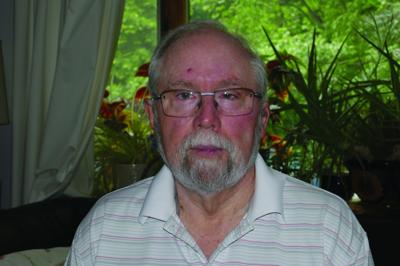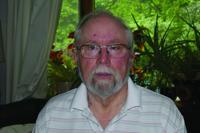Much as I like Thanksgiving (and I do like it), I find it an ironic celebration. In the mythology of our country, the Thanksgiving I learned about as a child in elementary school, the Pilgrims, newly arrived in the New World, shared a meal in 1621 with their neighbors, the Wampanoag Indians, in celebration of their first harvest. The Pilgrims had fled England, we learned, in order to be free to practice their religion. The issue was “religious freedom.”
No one, certainly no teacher of mine, bothered to mention that the Pilgrims were no more interested in religious freedom than their former countrymen. They were interested in the freedom to practice their religion but not for anyone else to practice theirs. That idea, the idea of religious freedom, of religious plurality, would have to await the Dutch to settle Manhattan and the Hudson Valley, not the Pilgrims in the Massachusetts Bay Colony. As for the Wampanoags, I have no idea what they thought. But for whatever reason, the two tribes — Pilgrims and Wampanoags — decided on a temporary truce and shared a meal. Strangers broke bread with each other. If peace between them was a sometime thing, it at least was possible on that one day.
Today, we rarely share our Thanksgiving with strangers. In my experience, our Thanksgiving celebrations have always been primarily family events. To be sure (and thankfully), there are plenty of people who volunteer to help at soup kitchens, prepare meals for the isolated and aged, prepare Thanksgiving care packages for the less fortunate. But even then, most of us retreat to our families for our actual celebration. At least that is what I do.
Perhaps that is because we Americans still remain rather tribal and sectarian in our impulses, and the older we are the more likely that is true. Our national obsession with broad generalizations about race, national origin, and religion, serves to mask the real differences every cultural and national group has had with each other. “No Irish need apply” was not a proposition fostered by black citizens. In the New York of the early 20th century, German Jews disparaged Eastern European Jews. In the South of the ‘50s white Protestants railed against white Papists. In 1990s New York, employers obsessed over perceived differences between American born blacks and those from the Caribbean islands. Cuban-Americans disparaged Puerto Ricans. To this day, most of us can’t tell the difference between various Asian groups even if they are acutely aware of their differences from each other.
In our current political climate, tribalism is being deliberately exacerbated, at least in terms of color, national origin and religion. If one decried “identity politics” in past years as a particularly Democratic syndrome, both Republicans and Democrats fiercely embrace its practice today, particularly at the extremes of both left and right, both trying to minimize if not annihilate the political center. If both continue on their current paths, they will be undermining, even presiding over the death of the very idea of America as enshrined in the Constitution and Bill of Rights.
Fortunately, it is not too late to change the trajectory of our politics, as unlikely as that may seem at the moment. The reality for most of us is we are not as sectarian and tribal as we think we are. I think, for example, of my own family. I am a third-generation American, my grandparents having immigrated as children from Russia in the 1880s. They, like me and my parents, were/are secular Jews. My wife is a third-generation American as well, her grandparents having emigrated from Sicily in the 1890s. Her parents were sometime Catholics and she, despite 12 years of parochial school, has long been a secular Catholic, presuming she’d attach the word “Catholic” as a descriptive word that has ever had any meaning for her in her life.
As for our children, fourth-generation Americans, they are a motley crew. Take my children. My ex-wife said her father was half Blackfoot Indian and half white, something he always denied, perhaps because it might not have played well in the 1940s and ‘50s Nevada business community where he lived. Her mother was mostly Scotch from a family that had settled in the West several generations in the past. So, my son and daughter have that along with my Russian heritage. And my son’s children have whatever that is combined with whatever their mother’s heritage, which, like the rest of us, is descended from various countries on the periphery of the Czarist Russian and Soviet Empire.
My stepdaughter, my wife’s daughter, has an equally jumbled background. Her father is a first generation Cuban-American with whatever combination of Old and New World family genes run through him. Her mother, as I’ve said is a third generation Italian-American. As I once told my stepdaughter when she was wondering about her own identity, that makes her 100% American, at least in my eyes. And her children continue with genetic heritages from all over the Western world. Today, she and her husband own two bar/restaurants in Brooklyn. Her employees, like her customers, are a portrait of America’s young people — every color, every religion, every sex, every combination of everything, all managing to get along with each other (most of the time).
If America is a country that is always becoming, always evolving, it can only do so if it is continually replenished and energized by the things that have made it what it is from the very beginning, a continuous feeding of America by those who imagine America as Reagan’s golden city on a hill, a country for those who aspire to a better, more expansive life, a life filled with possibility.
In the past few months I’ve read three books by women who remind me so much of who we Americans are, of how we’ve gotten to where we are. Samantha Power, Obama’s UN Ambassador, is a first-generation immigrant, having come from Ireland when she was 12. In her memoir, “The Education of an Idealist,” she speaks movingly of visiting her fellow ambassadors from around the world and visiting third world countries that had never been visited by such a high ranking American representative, and realizing that for them she, an immigrant, was the embodiment of America, America made manifest in their midst. Equally moving was her description of her UN staff who, like herself, were largely first and second-generation Americans.
A second book was the novel, “Girls Burn Brighter,” by Shobha Rha, a first-generation Indian-American, about two soul mates separated by the worst fates that can happen to poor girls from rural India who are desperate to find freedom from their pre-ordained destinies and each other again, perhaps, improbably, in America, the land of their dreams.
A third book is the yet to be published, “The Royal Abduls,” by Ramiza Koya, a second-generation Indian-American, with a father who was an Indian from Fiji and a mother who was white and from Texas. Her book is about a secular Muslim Indian family in post 9/11 America, all trying to find their way in an America that is not inclined to imagine that a Muslim might be secular, much less American, and what their individual identities really are, where they, as individuals, actually fit into America and where they will be allowed to fit. This is particularly true for the grandson, the child, like Ramiza, of an Indian father and white mother. Their discoveries lead to both expected and unexpected results.
I wish these three women could join us, our motley crew, at our Thanksgiving table. On this one day at least, while we’re eating our turkey and giving thanks for the things we have in our lives, I hope we all — you and me — can put aside our very real differences and animosities as did the Wampanoags and the Pilgrims, and imagine that we might, together, create a better, more perfect union, one that includes all of us, all of us Americans in all our diversity, while we break bread with strangers.
Michael Saltz is an award-winning, long-time, now-retired Senior Producer for what is now called “PBS NewsHour.” He is a resident of Hillsdale.









